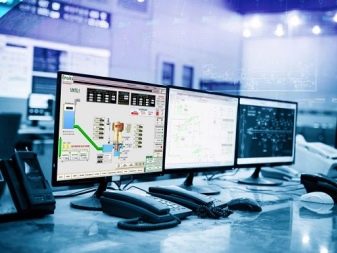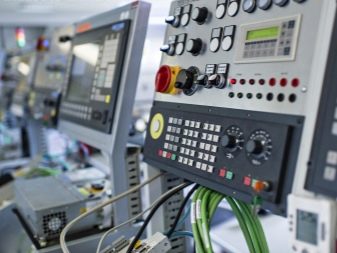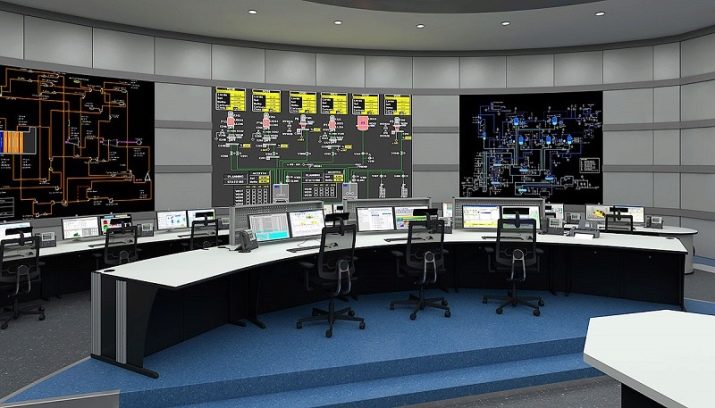All about the profession of an engineer of automated control systems

An engineer of automated process control systems is an important employee, without whom no modern enterprise can fully function. Today in our material we will talk about the features of this position, the responsibilities that a professional performs, as well as what a high-class employee must know and be able to do to effectively and successfully perform their functional tasks.
Peculiarities
An automated process control system engineer (the abbreviation stands for an engineer of automated control systems for a technological process) is a person which performs the tasks of management and control, as well as the automation of various technological processes at the enterprise. The automation designer also creates and designs control devices and creates appropriate algorithms. In general, the work of a leading specialist is rather complicated and complex, since he is fully responsible for the performance of a number of works related to debugging, putting into use and maintaining automated process control systems.
The first stage of an employee's work is setting up the parameters of the available software necessary for the work. Moreover, this process is carried out taking into account a separate automation object of a separate software and hardware structure.
The APCS engineer not only launches systems, but also comes up with schematic solutions for automation cabinets and selects the most suitable equipment for a particular case.

Responsibilities
Engineer of automated process control systems carries out its work activities on the basis of a special document called a professional standard. In addition to the professional standard, the specialist is guided by the job description. Both of these documents are presented to the applicant for review before the specialist is finally hired. Thanks to this, the employer can finally be convinced of the high competence of the future employee, and the applicant, in turn, can assess his abilities and make sure that he will be able to fully perform his work functions.
Consider the most important responsibilities of an automated process control system engineer:
- design of automated control systems through the use of special mathematical and economic methods and principles;
- introduction of the developed automated control systems into production activities;
- study and analysis of ways to manage the organization;
- preparation of technical specifications for other employees;
- creation of process control systems;
- control over the activities of subordinate employees;
- creation of methodological and regulatory materials;
- development of special methodological documentation;
- carrying out activities to support the developed projects and programs;
- participation in preparatory work;
- testing of equipment and materials;
- drawing up plans and work schedules;
- writing instructions, explanatory notes and guidelines;
- examination of technical documentation;
- control over compliance with the necessary requirements and standards, etc.
Although the job description of an engineer of automated process control systems is a standardized document, some employers may change or supplement its content depending on individual needs and wishes. Respectively, you must be prepared for such a situation and be able to quickly adapt to changing environmental conditions.
Among other things, it should be borne in mind that job management provides for responsibility for non-fulfillment or improper fulfillment by an engineer of automated technological process control systems of his professional duties... Thus, an unscrupulous and incompetent employee may receive a disciplinary reprimand or even lose his job.


Knowledge and skills
According to the requirements that employers put forward in relation to specialists holding the position of engineers of automated technological process control systems, an employee must know a large amount of specialized information, as well as have professional skills and abilities. Let's consider the main ones:
- knowledge of specialized regulatory legal acts, laws and by-laws (for example, decrees and orders) that regulate the work with APCS;
- knowledge of the latest data that relate to technical and technological development;
- knowledge of the design features and distinctive characteristics of the equipment used, materials and other technical means;
- the ability to correctly use a variety of information processing systems;
- knowledge of economic and mathematical methods;
- knowledge of labor legislation;
- knowledge of safety rules;
- the ability to apply working standards in practice;
- the ability to fill out accounting and reporting documentation, etc.
In addition, many employers are making demands not only to professional, but also to personal characteristics. So, for example, in a vacancy it may be indicated that the applicant must have such qualities as stress resistance, responsibility, diligence, punctuality, good memory, striving for personal development, etc.
It is believed that only the person who combines all the necessary professional and personal qualities will perform their work functions as efficiently as possible.


Education
As we discussed above, the job of an automated process control system engineer is very complex. In order for the specialist to be able to correctly and fully fulfill all his professional duties, he must have received appropriate specialized training. Depending on the specific place of work and the requirements of the employer, you may need a higher or secondary vocational education.
After the applicant graduates from school, he must choose a suitable university (for example, a university or academy) or a secondary school (for example, a college, school or technical school). The choice of educational institution must be approached carefully. First, you need to make sure that a particular educational institution has the appropriate faculty and direction of training - you need to choose engineering or engineering and economic specialties. In addition, it is recommended to pay close attention to the prestige and status of the university or college. The thing is that a large number of employers give preference to graduates of large metropolitan universities when hiring.
Depending on where and on what program you studied, the term of study can be from 3 to 6 years... At the same time, it is recommended to approach the learning process as responsibly and carefully as possible, since some employers may ask you to present an extract from the diploma with grades - preference will be given to the applicant whose average score is higher. In addition to theoretical training, you need to take care of completing all the necessary internships and practices, during which you will gain the necessary work experience, as well as hone existing and acquire new skills, but necessary for work. Besides, if you prove yourself excellent in practice, then later this place can become your permanent place of work.
However, even after completing your basic education and finding a job, it is very important to strive for continuous development and self-improvement. To do this, employees independently, as well as in accordance with the requirements of the company's managers, regularly improve their qualifications. To do this, you must attend the relevant specialized courses, conferences, trainings, master classes and workshops.
Thus, you will always stay abreast of the latest trends, accordingly, you will become a topical and highly-qualified specialist in demand among employers.

Work
First of all, it should be noted that an engineer of automated process control systems is a good profession. She is interesting, popular and in demand. After a young person graduates from an educational institution, he can apply for an initial (or starting) position in the engineering department of a large or small enterprise. Very often, these specialists are engaged in work that is related to instrumentation and automation (or instrumentation). Sometimes students, while still in the process of their studies, are determined with their future field of activity. For this, many universities organize specialized groups.
For example, young professionals can work in the non-ferrous metal industry. In addition, many modern engineers of automated process control systems associate their work with the popular and developing field - programming. One way or another, but the specialists of the automated process control system can work both at state and private enterprises. Thus, we can conclude that this profession is distinguished by a high level of versatility, since a specialist can apply the acquired knowledge and experience in a wide variety of areas of human activity.
It is also important to mention the fact that the salary of such specialists is quite high. Specific figures can vary significantly depending on the region of residence - it is obvious that the material remuneration of the capital's specialists is much higher than that of those workers who work in the provinces.
Also, salaries differ depending on qualifications and experience, as well as from a specific enterprise. In any case, its size is above the national average.









